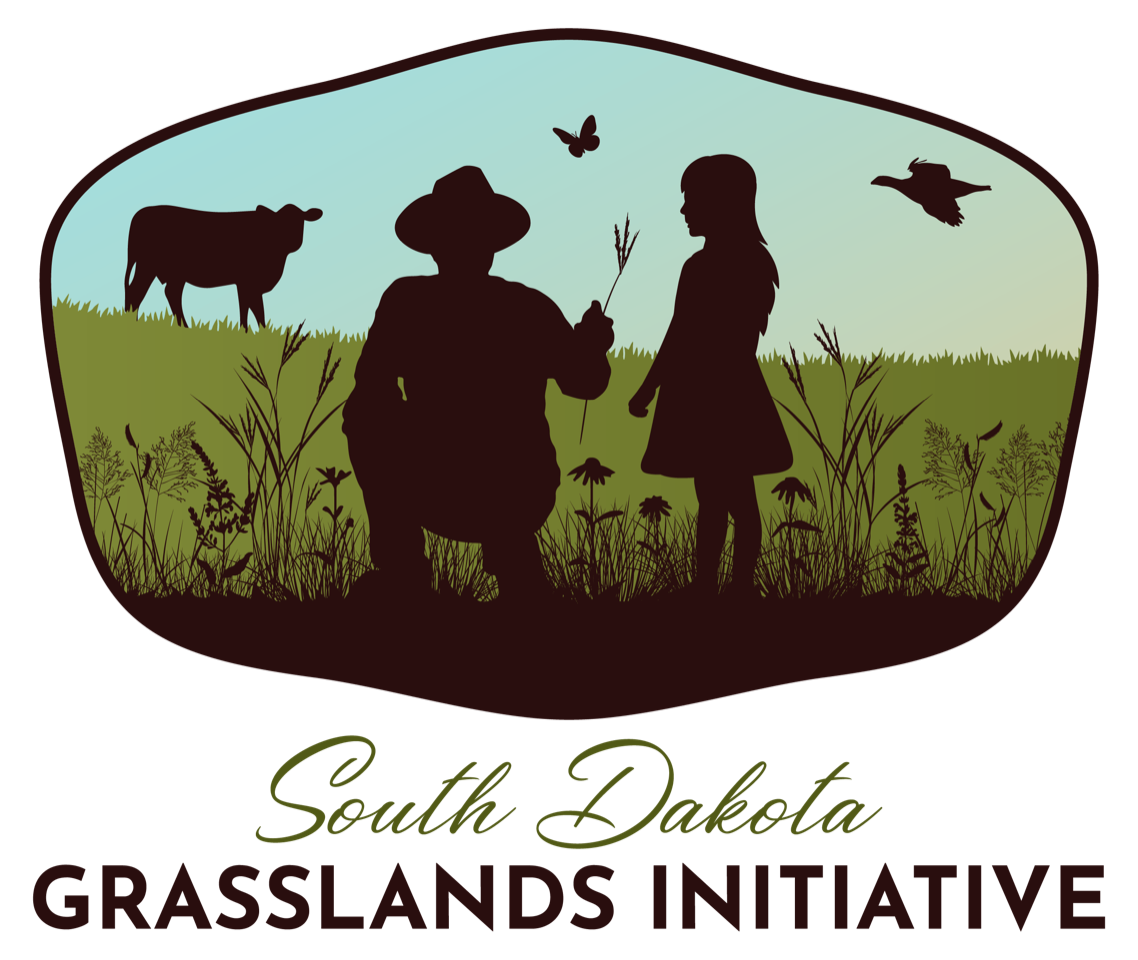South Dakota Grasslands Summit
Grasslands: South Dakota’s Most Valuable Resource
March 3-4, 2026 | Mitchell, SD
March 3-4 | Highland Center | Mitchell, SD
The Grasslands Initiative invites you- as a professional, as a supporter, or as a curious learner, to widen your view on the grasslands in South Dakota through presentations and conversations at the South Dakota Grasslands Summit in Mitchell.
A block of rooms is available at Comfort Inn & Suites and Hampton Inn. To take advantage of the block of rooms, call before Feb 2, 2026 to reserve your room.
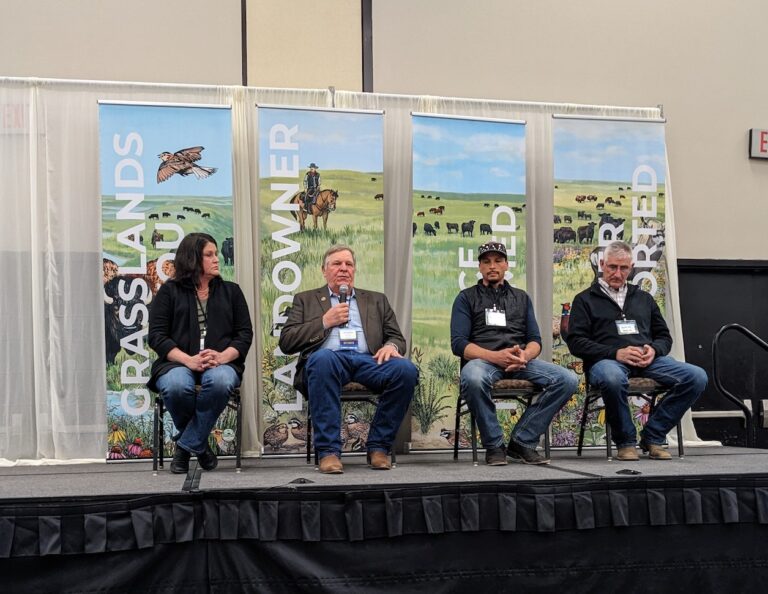
More About Us
The South Dakota Grassland Initiative is a collaborative network of diverse organizations, agencies, and individuals who support grasslands as a means of retaining prairie ecosystems, both native and restored, while sustaining rural economies and healthy communities.
Sponsorship Opportunity
The South Dakota Grasslands Summit is a significant event for the landscape and communities of South Dakota, bringing together individuals from around the region to focus on the future of our grasslands and the sustainability of our rural communities that depend on them.
If you would like to be a sponsor of the 2026 Summit, please CLICK HERE to fill out the sponsorship request form or reach out to Laura at laura@sdgrass.org.
Online Sponsorship Payment
If you would like to submit your sponsorship payment via credit card or Paypal, please enter the sponsorship amount below. Once you have entered an amount, you may select Paypal or Credit Card to process the payment.
2026 South Dakota Grasslands Summit Registration Form
The registration cost is $75. Registration deadline is February 24. Please be sure to register soon if you plan to attend.
Thanks to our Sponsors!
The South Dakota Grasslands Summit is a significant event for the landscape and communities of South Dakota, bringing together individuals from around the region to focus on the future of our grasslands and the sustainability of our rural communities that depend on them.





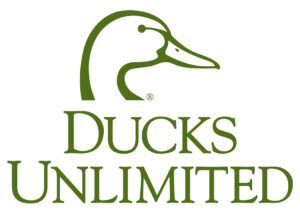

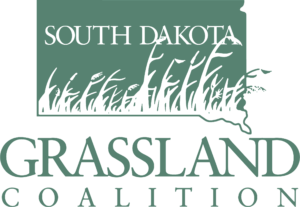



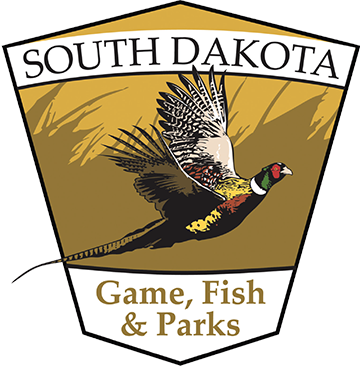
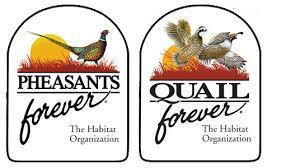

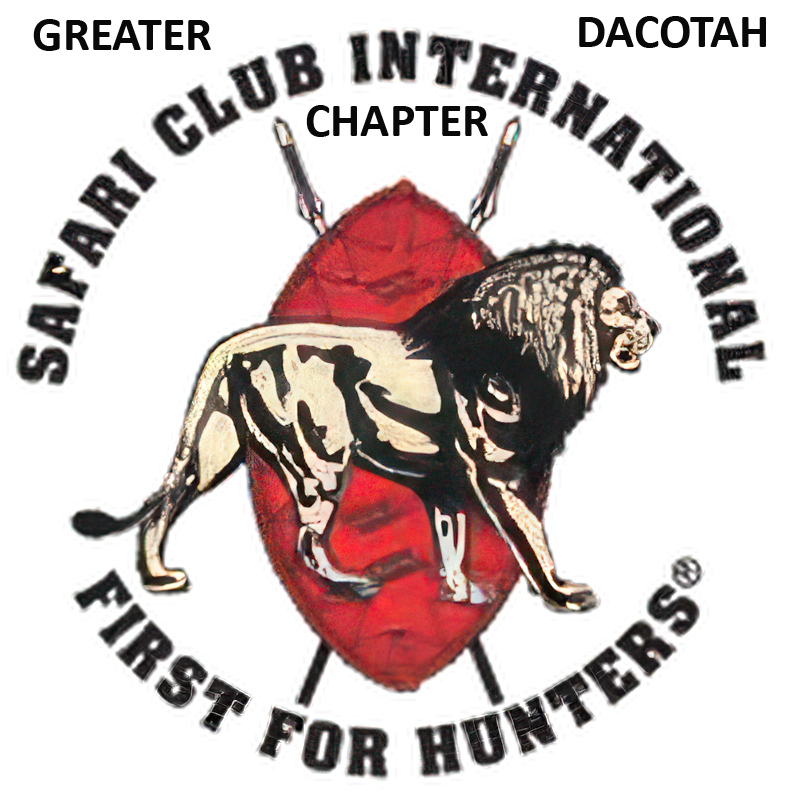
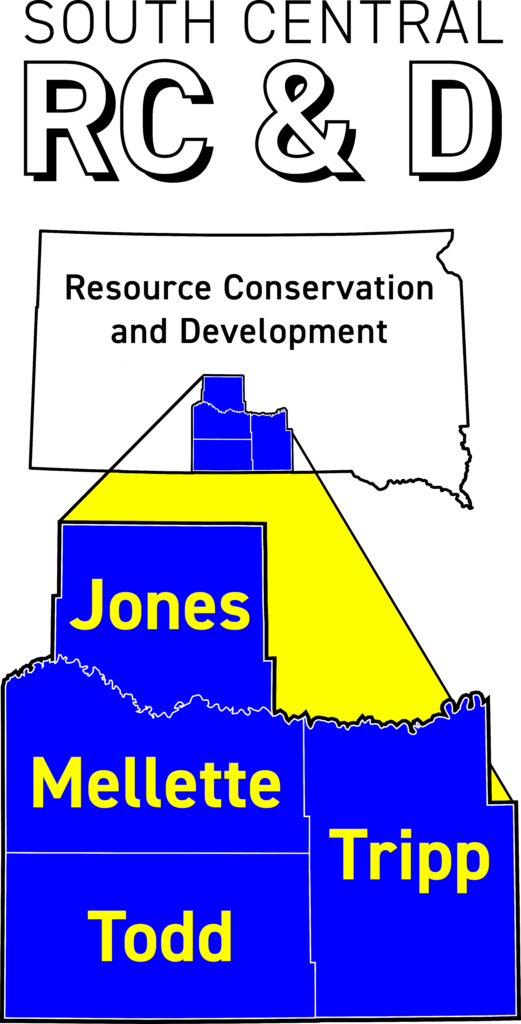

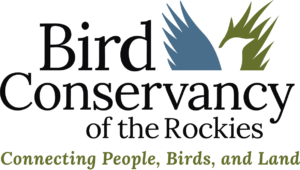
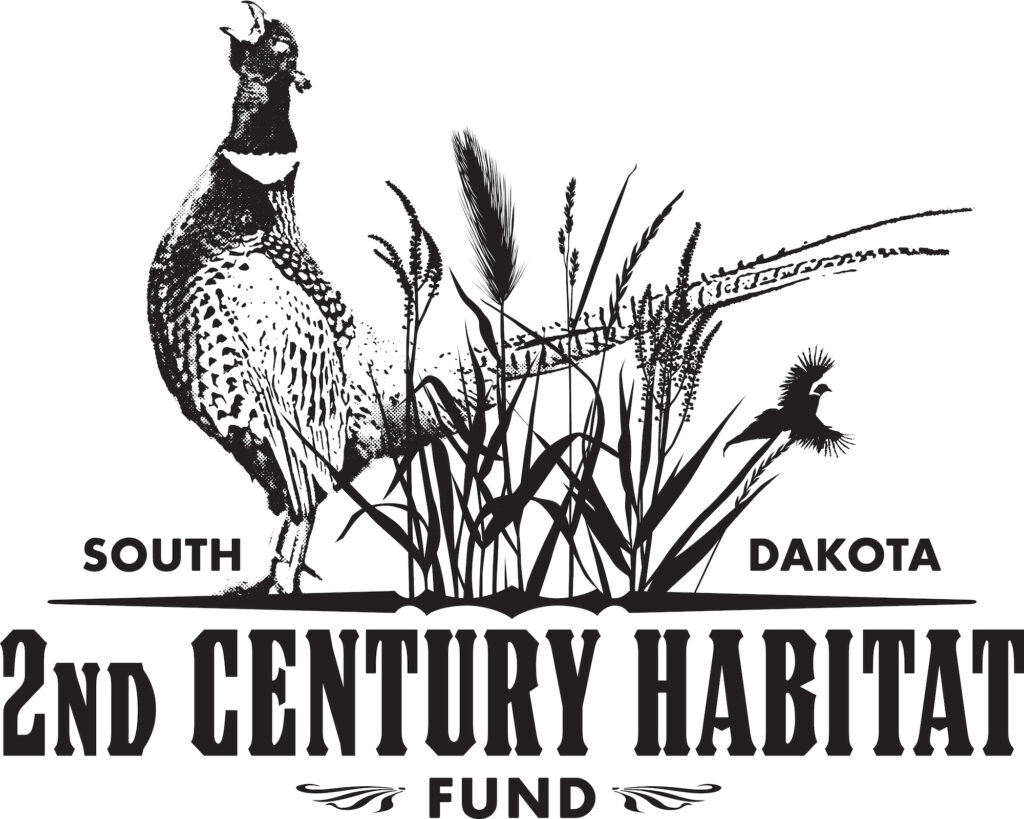
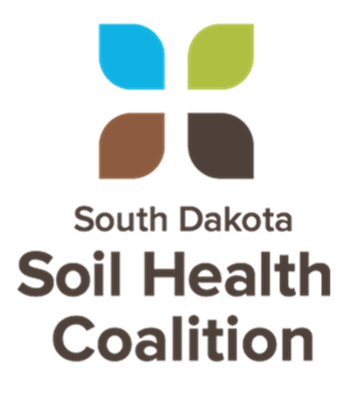


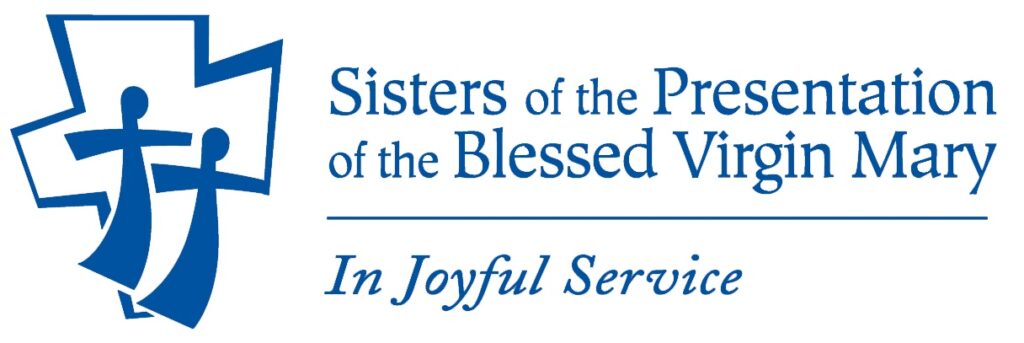


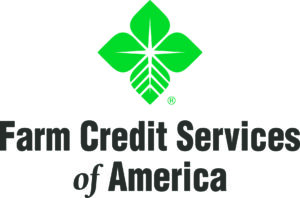



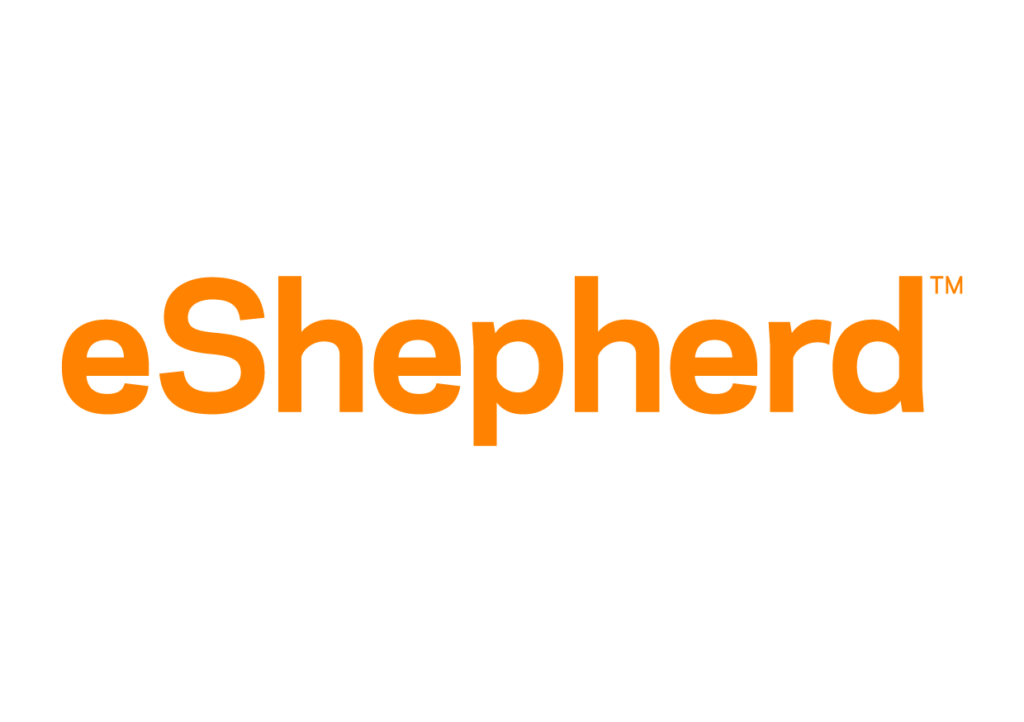
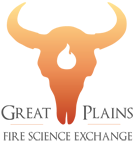
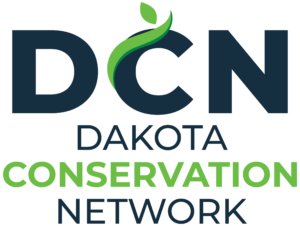
Tuesday, March 3
| Time | Session | Details |
|---|---|---|
| 8:00 – 9:15 | Registration |
|
| 9:30 – 10:25 | Welcome & Looking Back at Two Years of Impact |
The opening session will feature brief updates from a variety of speakers highlighting progress within the South Dakota Grasslands Initiative, along with key developments in grassland conservation since the 2024 South Dakota Grasslands Summit. Speakers:
|
| 10:25 – 10:40 | Break |
|
| 10:40 – 12:00 | Cross-Sector Connections in Grasslands |
|
| 12:00 – 1:00 | Lunch |
|
| 1:00 – 2:50 | Grassland Impact on South Dakota Life |
|
| 2:50 – 3:15 | Break |
|
| 3:15 – 3:45 | Policy Panel |
Representatives from our Congressional Offices will share updates on policy efforts related to conservation and agriculture, followed by perspectives and updates from staff representing several non-governmental organizations. |
| 3:45 – 4:15 | Understanding Federal Conservation Funding |
Matt Monick |
| 4:30 – 5:45 | Conservation District Exploration |
SDGI leadership, workgroup members and any individuals involved with a Conservation District are invited to a special session focused on what is already happening for grasslands through conservation districts, and how collaboration with SDGI and its workgroups could support both the District and SDGI partner goals. |
| 5:00 – 6:00 | Grasslands Film Showcase |
A casual event for attendees to mingle and enjoy some of the quality short films that have been produced highlighting what the grasslands have to offer. |
| 6:00 – 8:00 | Graze & Grow Connections |
Social, Supper, Poster Session & Sponsor Showcase |
Wednesday, March 4
| Time | Session | Details |
|---|---|---|
| 8:00 – 8:45 | Coffee with Speakers |
Join speakers from the SD Grasslands Summit for coffee and informal conversation. This relaxed break offers an opportunity to sit down with one or more speakers as you move around the tables in the room to ask questions and continue discussions sparked from Day 1. Participants of Wednesday’s grassland restoration panel will also be available at a roundtable for small-group conversation. Speakers include:
|
| 9:00 – 10:00 | Panel: Returning Cropland to Working Grasslands |
Producer stories of leveraging resources from Partners Speakers:
|
| 10:00 – 10:15 | Break |
|
| 10:15 – 11:00 | Raising the Bar Across the Prairie |
Inspirational stories of collaboration for the improvement of grasslands and community.
|
| 11:00 – 11:45 | Table Talk - Continuing to Raise the Bar with SDGI |
Share your voice to help shape the continued direction of strengthening South Dakota’s grasslands - both within the SD Grasslands Initiative and with other efforts. |
| 11:45 – 12:00 | Wrap Up |
Joe Dickie, Joe Dickie Photography |
| 12:00 – 12:30 | Lunch |
|
| 12:30 – 4:00 | South Dakota Heritage Fund Forum |
Join this session to learn how Outdoor Heritage Funds work in neighboring states, share ideas, and take part in a facilitated discussion on what an Outdoor Heritage Fund could look like in South Dakota. Landowners, conservation and agricultural organizations, community leaders, and engaged citizens are welcome to participate. Heritage Fund Voices and Perspectives include:
|
Schedule of Events
Monday, March 18
9:00
Registration
9:30-10:30
Opening Session: The Status of South Dakota's Grasslands
The Magic of the Grasslands- Dr. Barry Dunn
Central Grasslands Roadmap Overview and Future- Maggie Hanna
10:45-12:45
Session 1: Grassland Economics & Profitability
Considering Conservation in Ag Financing- Don Morgan
Cows VS Corn; Why Cows are Losing- Lyle Perman
Economics of Grazing Management Systems- Victor Tuschen
Panel:Increasing Profitability & The Grasslands- Ben Juelfs, Shaun Grassel, Don Morgan, Lyle Perman & Victor Tuschen
12:45-1:45
Lunch
1:45-3:30
Session 2: Economics of a Changing Landscape
Increasing Recognition of the Value of Grasslands- Dirac Twidwell
What Does your Banker Need to Have?- David Koupal
Grasslands are the Solution to Environmental Issues - A Rancher’s Perspective- Dave Ollila
Economics of Conservation and Grassland Impact- Anthony Bly
3:30-4:00
Afternoon Break
4:00-5:15
Session 3: Solutions for Grassland Conservation
Farm/Ranch Makeover. The Journey of Converting Farmland to Grassland- Brett Nix
Panel: Economics of Collaboration- Dominc Harmon, Jessica Michalski, Jim Faulstich, Brett Nix
5:15-5:45
Where do we go from here?
Dakota Grasslands - Where Good Things Grow- Jeff Zimprich
Day One Closing
7:00-9:00
Graze, and Grow Connections: Social, Poster Session & Vendor Show
Schedule of Events
Tuesday, March 19
7:30-8:15
Optional Coffee with Summit Speakers
8:30-10
Welcome & group discussions
SD Grasslands Initiative Goals & Plans
Audience Q & A with Summit Speakers
10-10:15
Break
10:15- 12:00
Supporting our Grasslands as Partners
12:00-3:00
Grassland Conservation & Policy leader's Forum
Meet the Event Speakers
Expert Speakers
We are still gathering speaker bios. Check back soon to see the full list of speakers for this year's event.
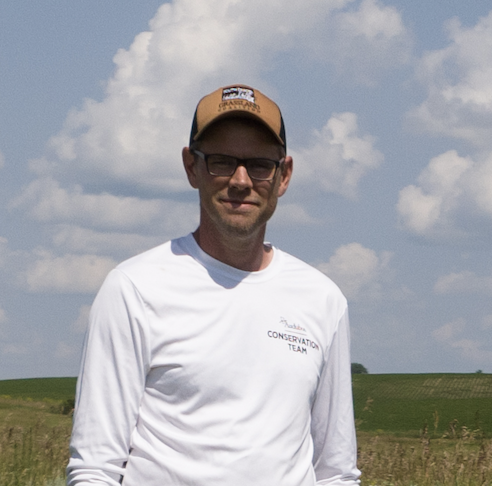
Joshua Lefers
Josh serves as Director of Conservation for Audubon Great Plains, leading strategic efforts to restore and protect prairie and wetland ecosystems across North Dakota, South Dakota, and Nebraska. With over a decade of experience in natural resource management and ecological outreach, he builds collaborative programs that benefit birds, people, and the landscapes they share.
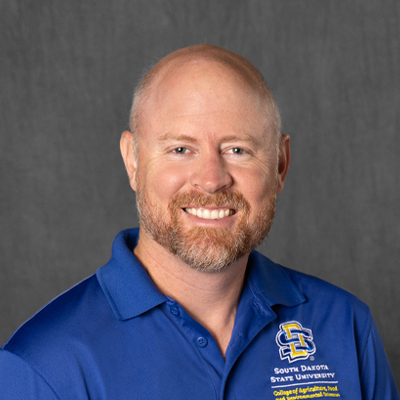
Dr. Ryan Lefers
Dr. Ryan Lefers is the Griffith Endowed Chair in Agriculture and Water Resources, South Dakota Water Resource Institute Director and State Water Extension Specialist in the Agriculture and Biosystems Engineering Department at SDSU. Ryan is an expert in water quality and management in agriculture systems and understands well the complex interactions between food, water, energy and the environment. Ryan’s passion is to serve people and steward the planet through education, research, extension and innovation. As a native South Dakotan farm kid, Ryan loves the South Dakota outdoors and the diversity of natural landscapes found across the state.
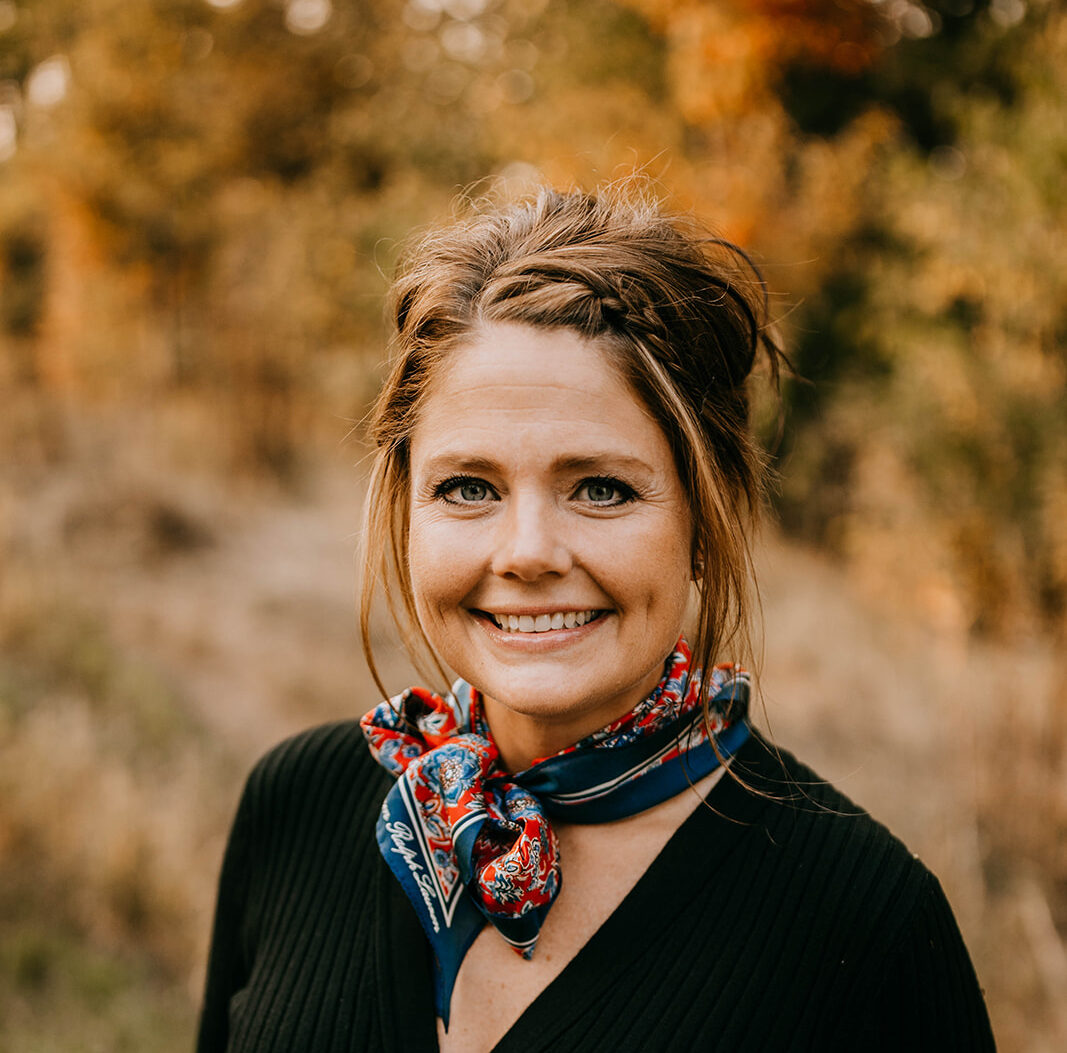
Dawn Butzer
Dawn and her husband operate a family-run business centered around cattle order buying, alongside managing a purebred Red Angus herd. Through their operation, Dawn has firsthand experience with the transition from tillable ground to productive pasture and the management decisions that make it successful. In her presentation, From Tillable Ground to Pasture, Dawn will share practical insights and lessons learned from converting cropland into grazing land and building a resilient pasture-based system.
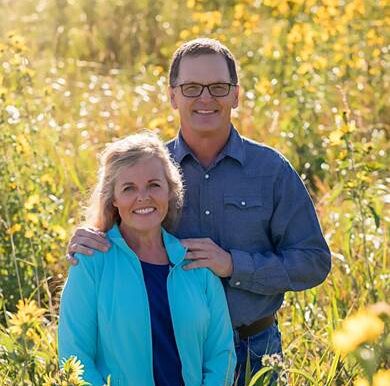
Dean & Candice Lockner
Dean & Candice are passionate conservationists who have farmed and ranched south of Ree Heights, SD for over 40 years. They converted marginal farmland to perennial grazing lands to stop road damage, to regenerate soil health and to improve profitability. By working with the laws of nature and focusing on soil health, the Lockners have transitioned from a traditional labor intensive operation, to regenerative custom grazing and a more relaxed, family-friendly lifestyle.
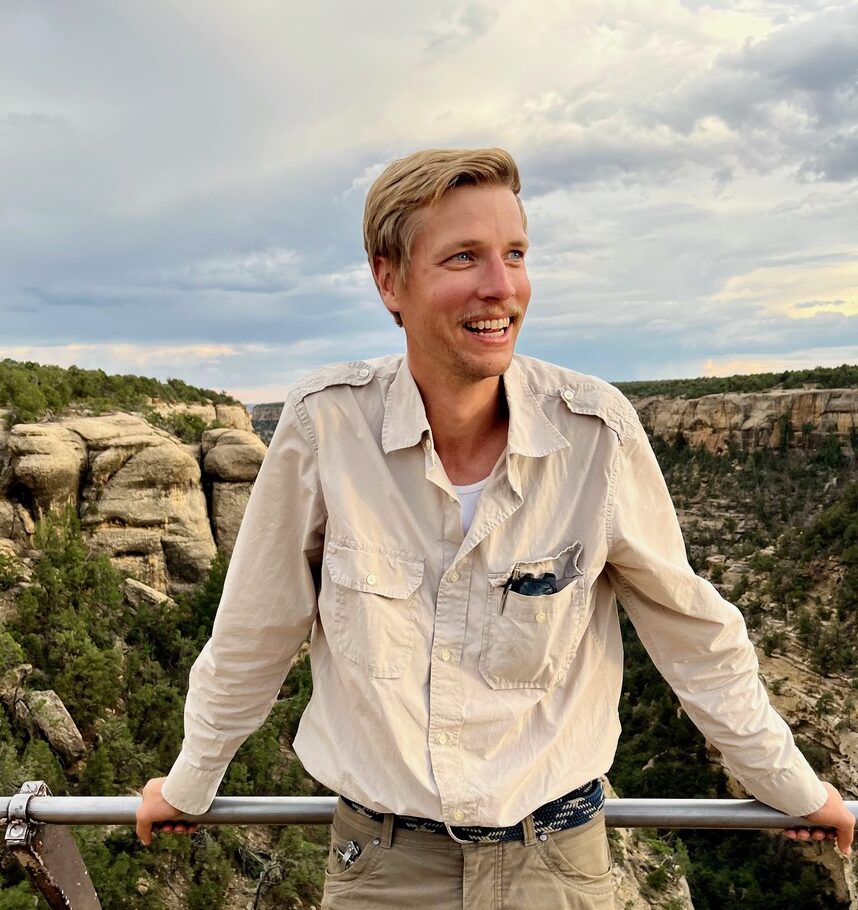
Dr. Ryan Schmid
Ryan Schmid is a research scientist with Ecdysis Foundation, a non-profit located near Estelline, SD. Ryan leads the foundation's rangeland studies, focusing on how grazing practices affect pollinator and dung arthropod communities, and how livestock management facilitates ecosystem resilience through fostering biodiversity in grasslands.
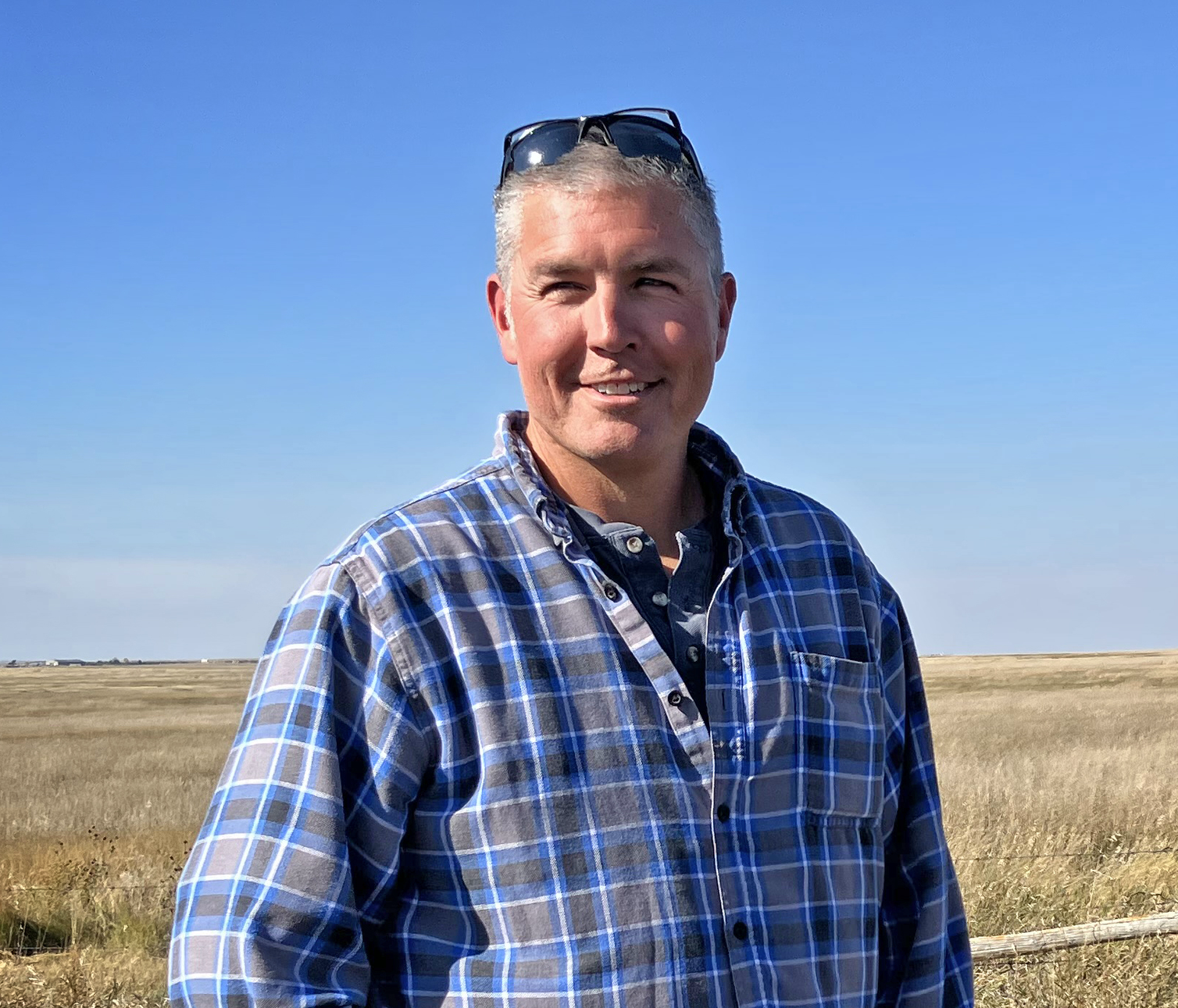
Shaun Grassel
Shaun Grassel, PhD serves as Chief Executive Officer for the Buffalo Nations Grasslands Alliance, a Native-led nonprofit organization. Prior to this role, Shaun was a Wildlife Biologist for the Lower Brule Sioux Tribe for 25 years. Shaun raises cattle and native grasses for seed production on the Lower Brule Reservation.
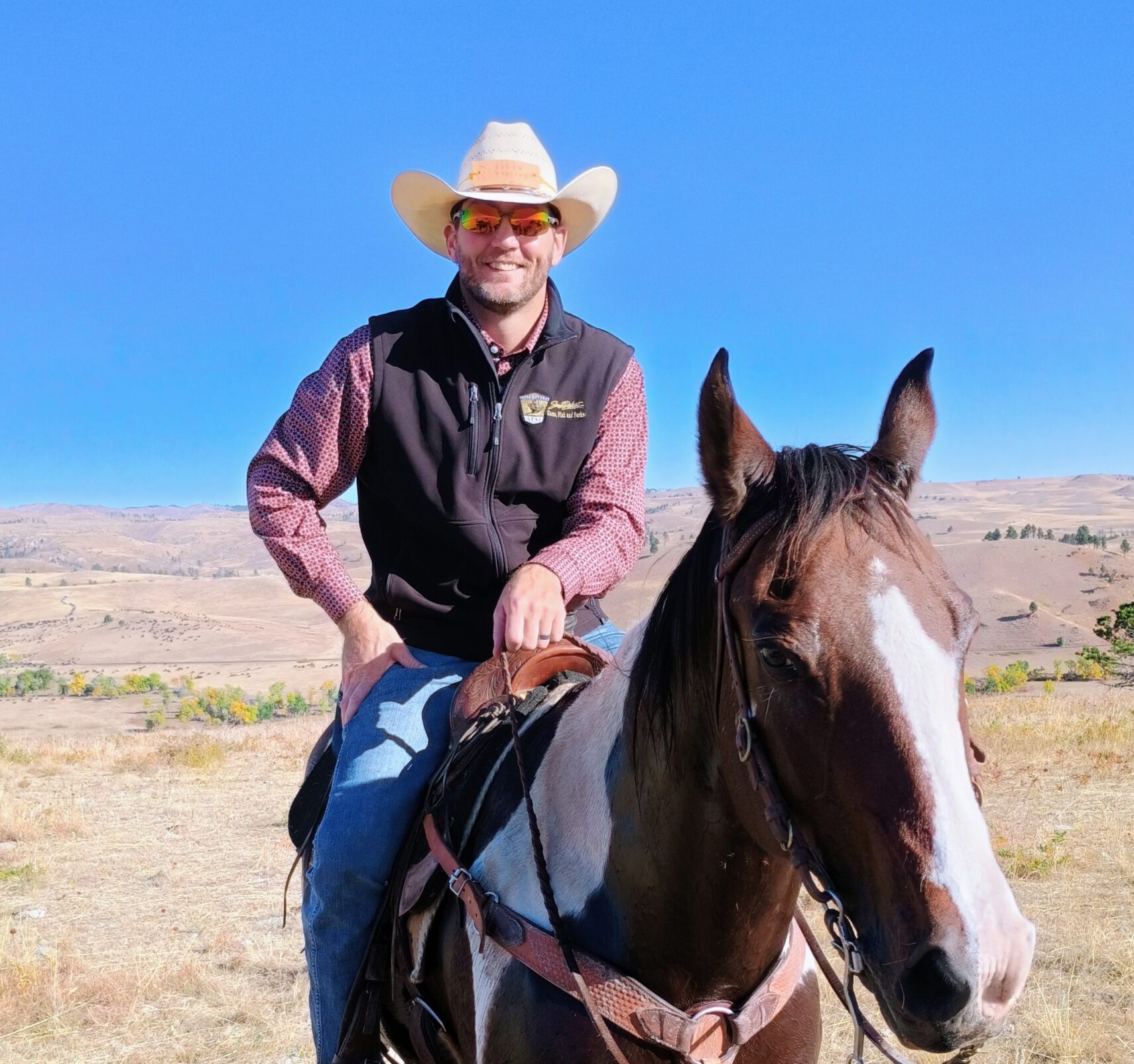
Kevin Robling
Kevin Robling was appointed as the Secretary of the South Dakota Department of Game, Fish and Parks in 2021. Prior to this appointment he worked with the department as a big game biologist and then held a statewide leadership role working directly under the Department Secretary in 2018. He holds both a bachelor’s and a master’s degree in wildlife and fisheries sciences from South Dakota State University. Kevin is known for his strong commitment to conservation, outdoor recreation, and building relationships with landowners, producers, and the public. His leadership focuses on conserving natural resources while ensuring high quality outdoor opportunities exist for current and future generations. Kevin also operates a cow-calf cattle operation, reflecting his deep ties to agriculture and land stewardship.
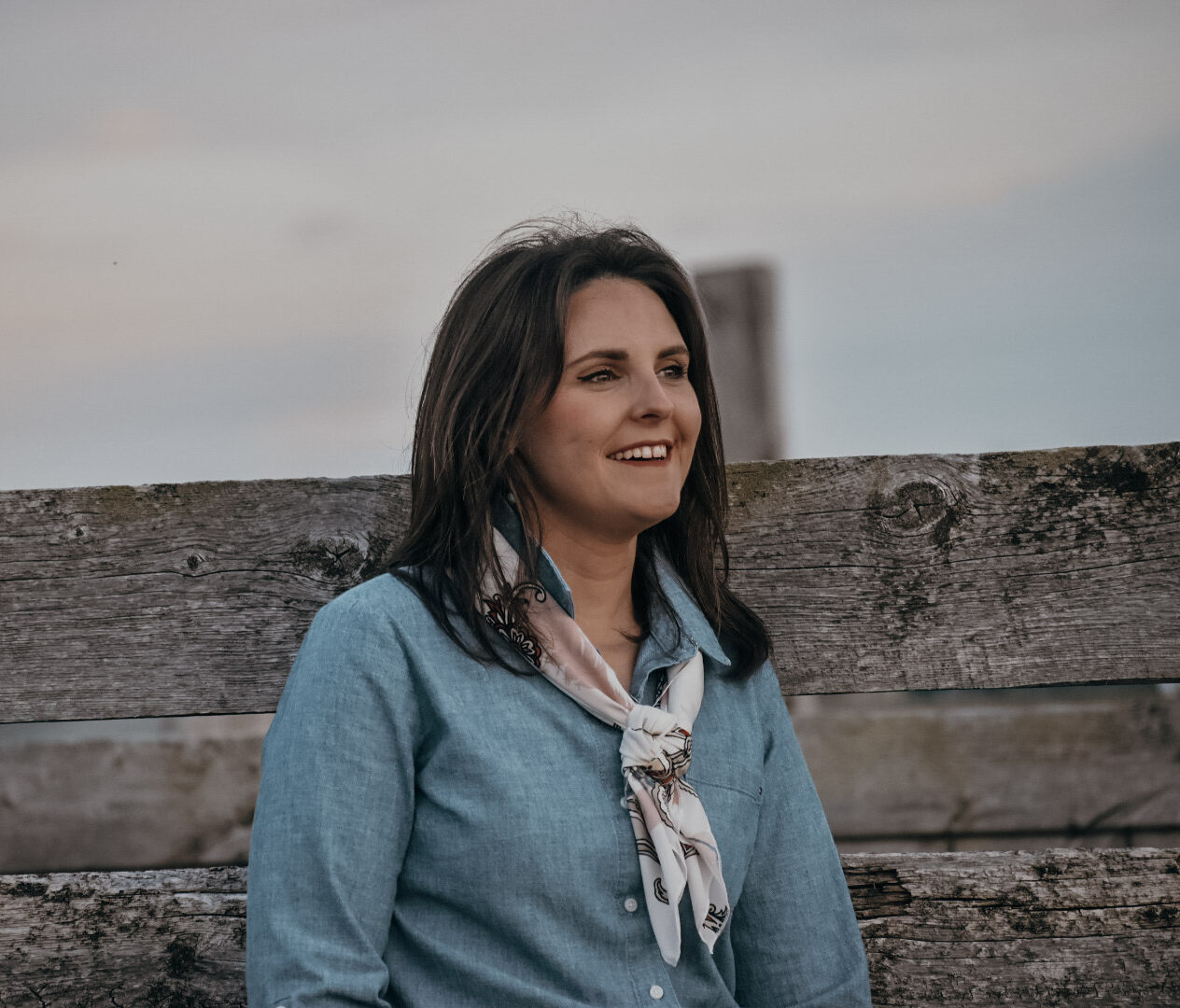
Desi King
Desi grew up ranching in Nevada and has called Montana home since 2019. She earned a bachelor’s degree in sustainable natural resource management from the University of Montana Western and previously served as Executive Director of the Nevada Cattlemen’s Association, where she worked across industries to advance sage grouse conservation. After earning her law degree and practicing in Billings, Desi returned to collaborative, community-based conservation with landowners and partners. She is passionate about stewardship and sustainability rooted in local communities. Desi and her husband have a cow-calf operation on his family's ranch in Winnett.
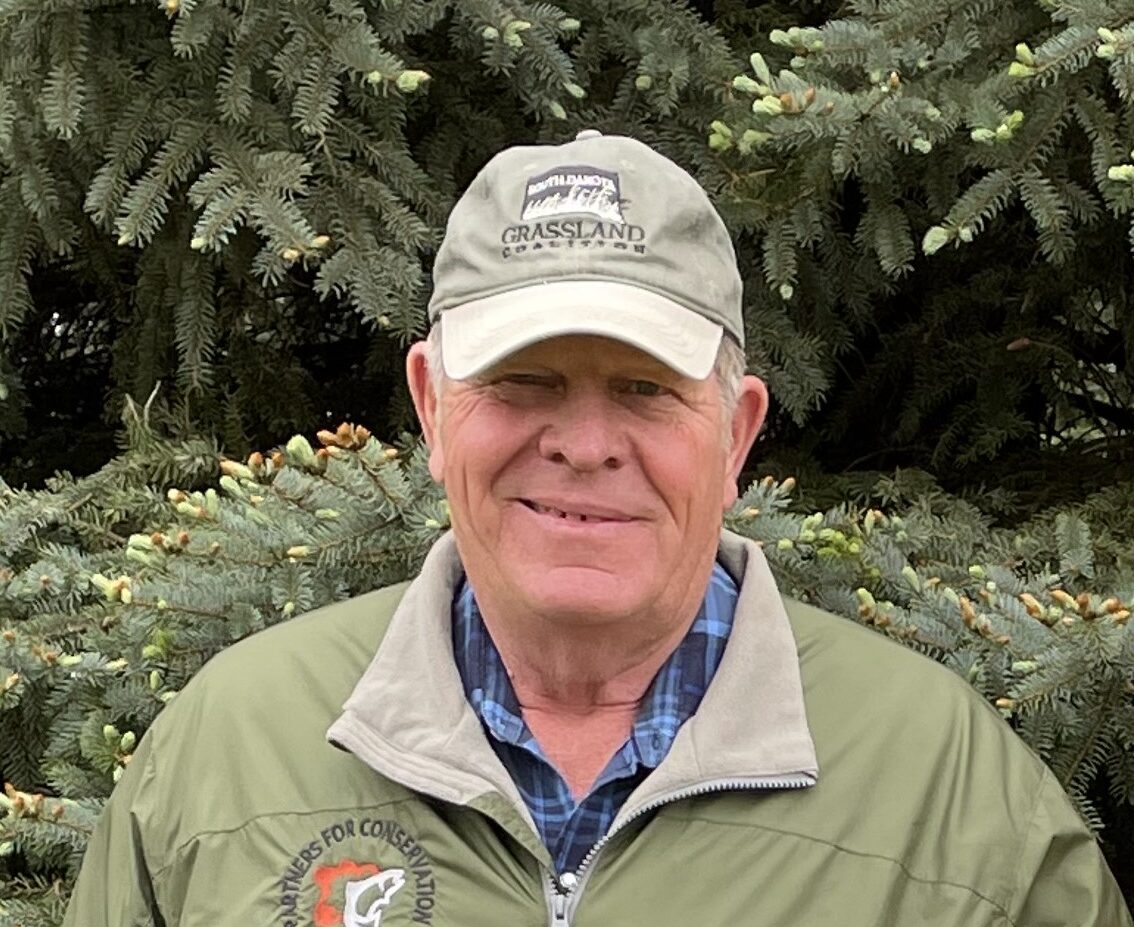
Jim Faulstich
Jim Faulstich lives on Daybreak Ranch in Central South Dakota, along with his wife Carol. The ranch that Jim has spent his entire life on is primarily a cow calf operation but has several diverse enterprises including two hunting operations. He has been a longtime advocate for proper land use and grassland and wetlands. Jim has served on several conservation boards in South Dakota.
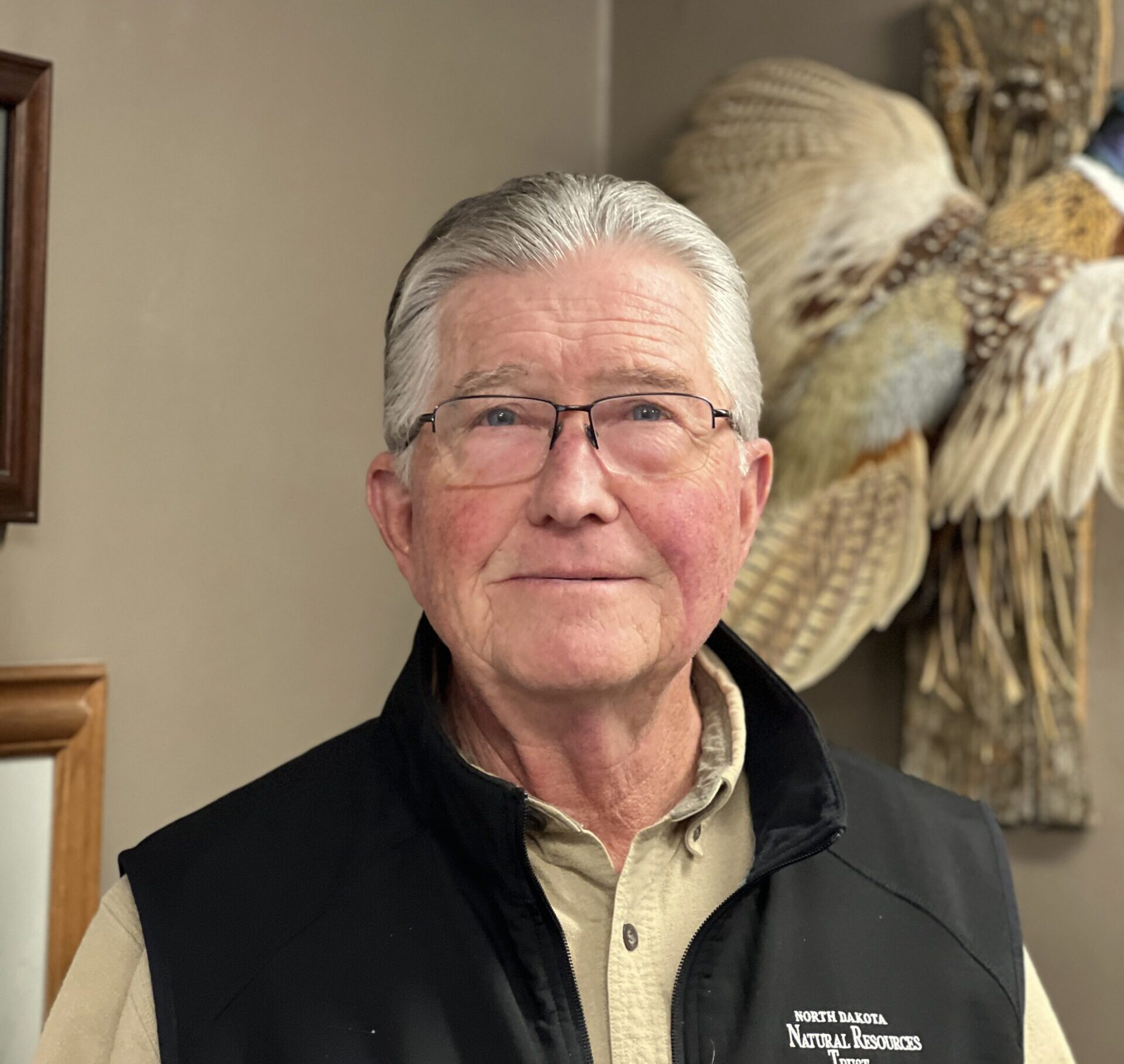
Keith Trego
Keith Trego has been the executive director of the ND Natural Resources Trust since 1998. Prior to that he was deputy director of the ND Game & Fish Department. Keith has an MS degree in wildlife management from ND State University. His work experience includes fish and wildlife management, planning, law enforcement, administration and public policy work at the state, regional and national and national level.
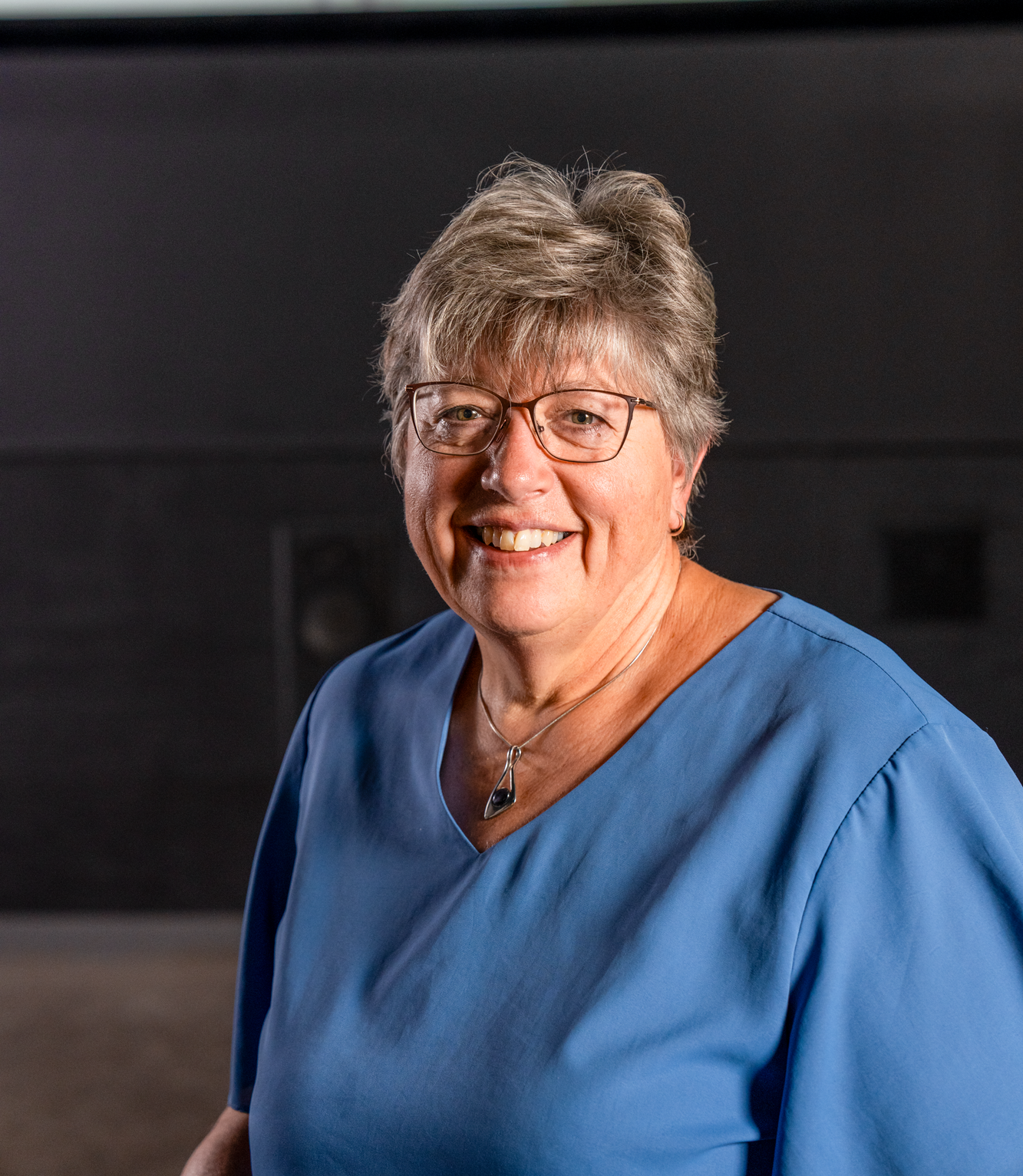
Jewell Bork
Jewell Bork has been part of South Central Resource Conservation and Development (RC&D) since 2007. She and her husband operate a cow/calf operation and farm with their son near Okaton, SD. Jewell loves rural life and is actively involved in several civic organizations. She especially enjoys working with youth and supporting her community.
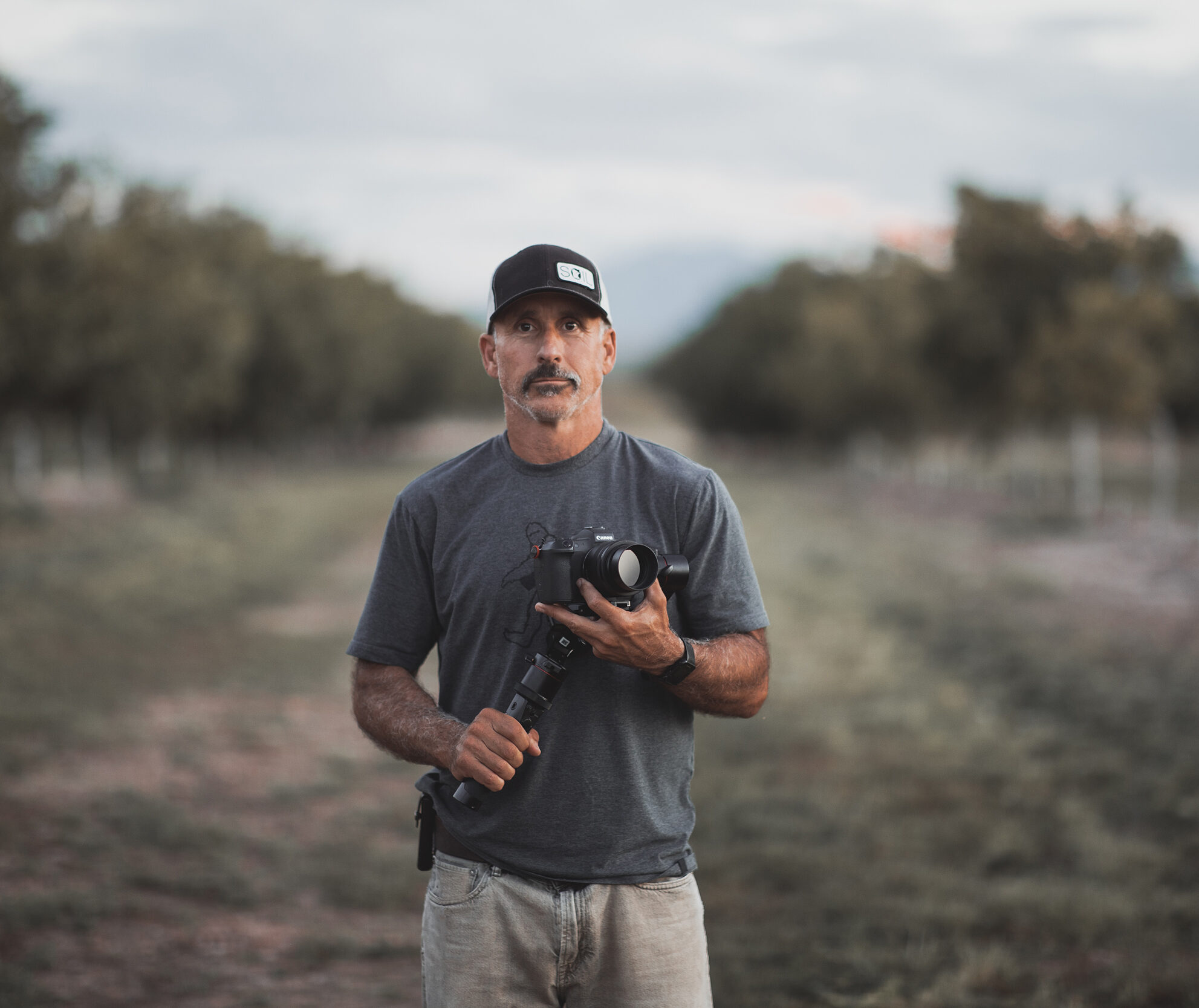
Joe Dickie
Joe is an Emmy award winning photographer and videographer who specializes in farm and ranch conservation stories. He attended college at the University of Minnesota graduating with a Fine Art degree. He added a Design degree, and spent 10 years as a Creative Director before pursuing his true passion, photography and videography. In 2013 Joe began focusing on grassland conservation stories, mostly in the beautiful state of South Dakota.
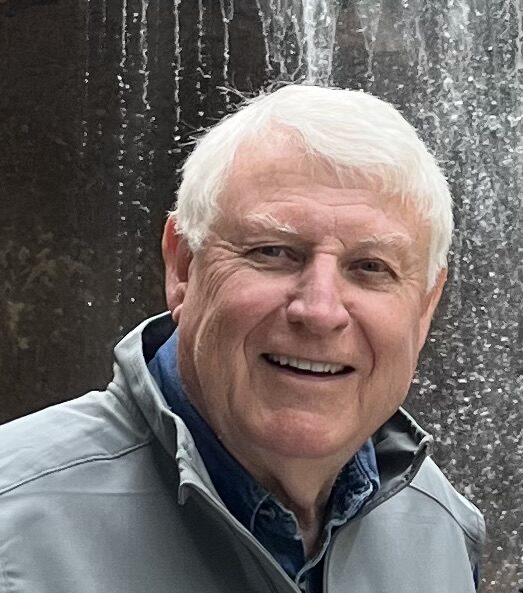
Randy Moody
Randy Moody is a retired lawyer and lobbyist living in Lincoln, NE, and near Tucson, AZ. In 1992 he was the campaign manager for Friends of Education and the Environment which sponsored the ballot initiative for the constitutional amendment in Nebraska creating the state lottery. Representing The Nebraska Nature Conservancy, the same year, he helped start the Nebraska Environmental Trust which awards $20-25 million a year to conservation projects in the state from lottery money. He is currently a board member of Friends of the Nebraska Environmental Trust which is dedicated to preserving the mission and funding of the Trust.
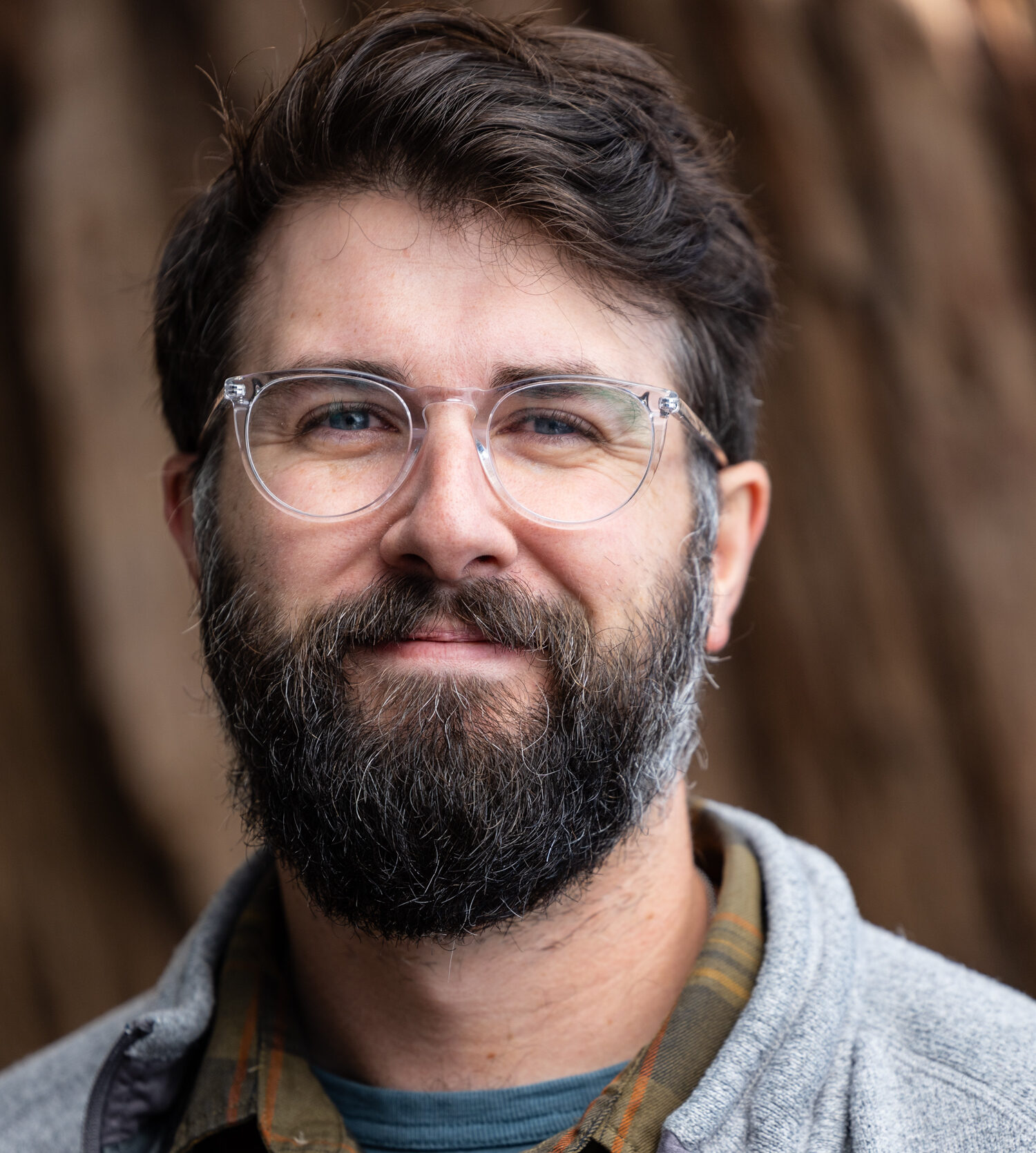
Travis Entenman
Travis is a dedicated conservationist whose passion for nature was cultivated in the diverse landscapes of North America. With a Master's degree in Environmental Law and Policy from Vermont Law School, Entenman has channeled his expertise into leadership roles as the Executive Director of Friends of the Big Sioux River and the Northern Prairies Land Trust. In these positions, he focuses his efforts on conserving native prairies, cleaning watersheds, and educating communities about the importance of environmental stewardship.
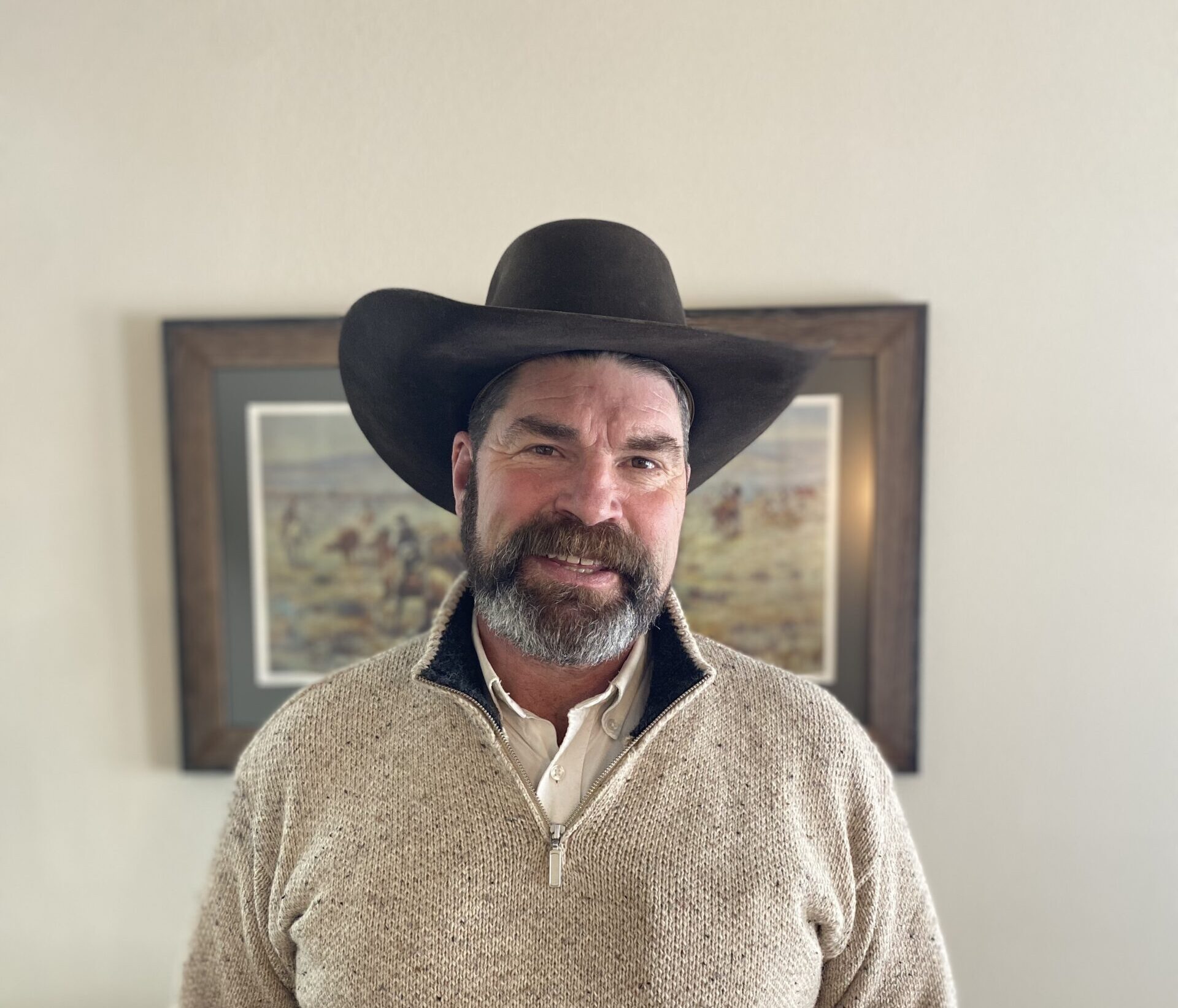
Wilbur Reid
Wilbur and Erica Reid own and, together with several of their children, operate Reid Ranch. Though they are new to South Dakota, they ranched in Montana for 5 generations. They recently purchased a large farm in western South Dakota and are in the process of converting much of it back to perennial pasture.
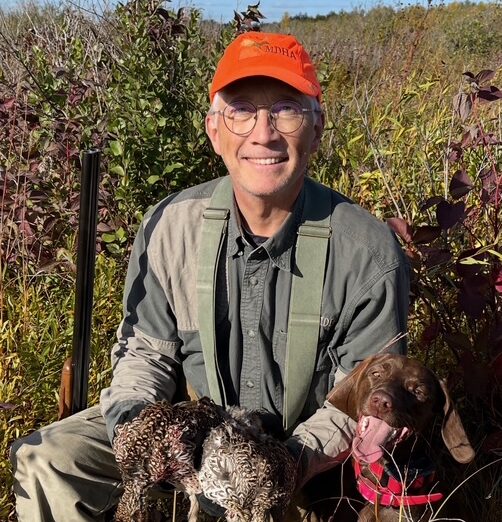
Mark Johnson
Mark recently retired after 35 years in conservation. Holding a masters degree in management, Mark served the last 11 years of his career as the Executive Director for the Lessard-Sams Outdoor Heritage Council (LSOHC); a MN Legislative Council that makes annual conservation funding recommendations to the legislature and monitors Outdoor Heritage habitat project spending in MN.
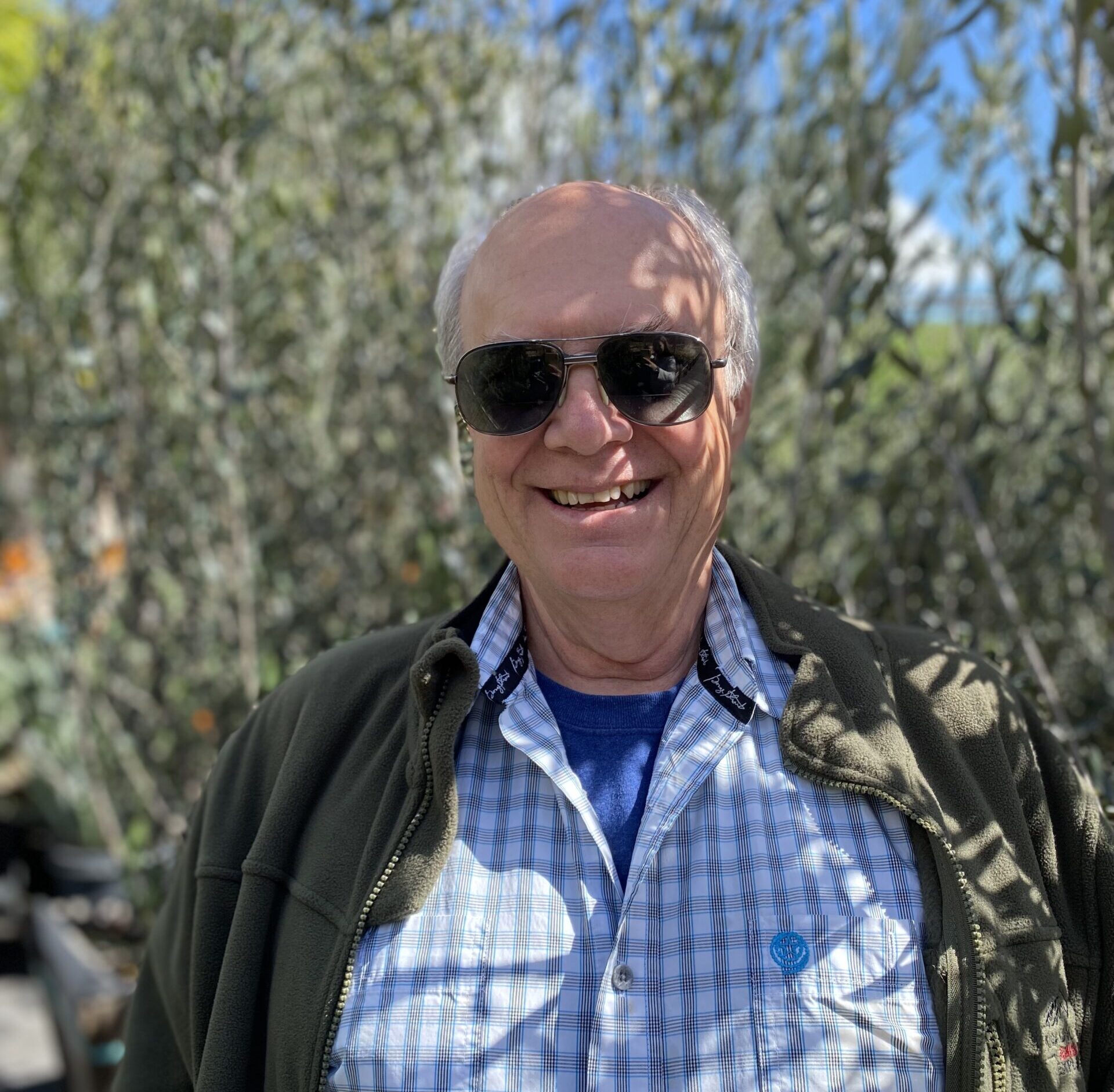
Bret Adee
Bret Adee is a third-generation commercial beekeeper based in Bruce, South Dakota. Along with his family, Bret runs Adee Honey Farms, which is one of the largest beekeeping operations in the country, producing honey and offering pollination services. Bret is on the board of directors of the American Honey Producers Association, Executive Board of Directors of the American Bee Federation, past president of the Pollinator Stewardship Council, and previously on the board for the National Honey Board.
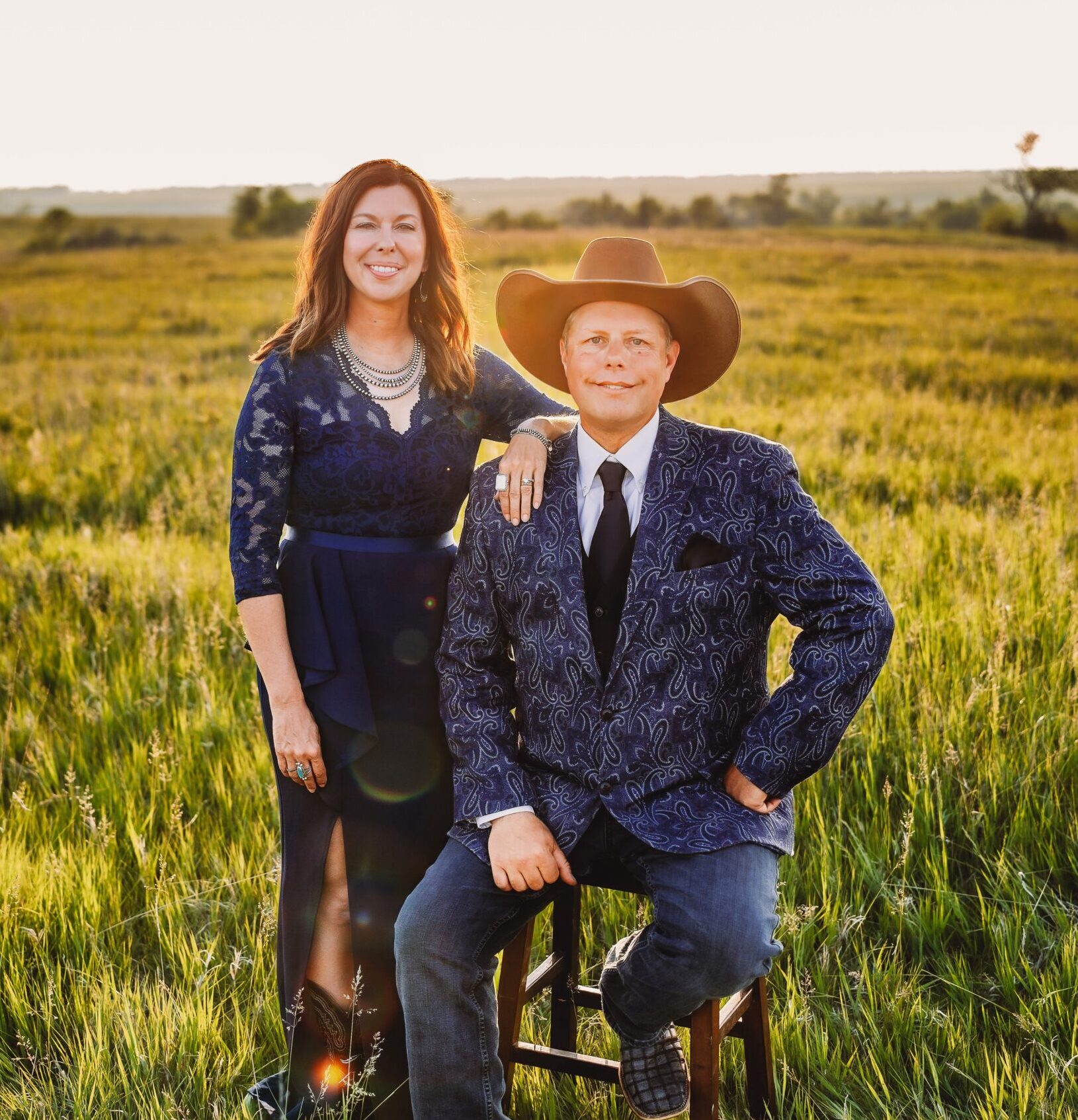
Stacy Hadrick
Stacy and her husband Troy operate Hadrick Ranch near Faulkton, SD. They have a cow/calf operation and raise crops for feed. The Hadricks sell their beef directly to the packer and to resturants and consumers.
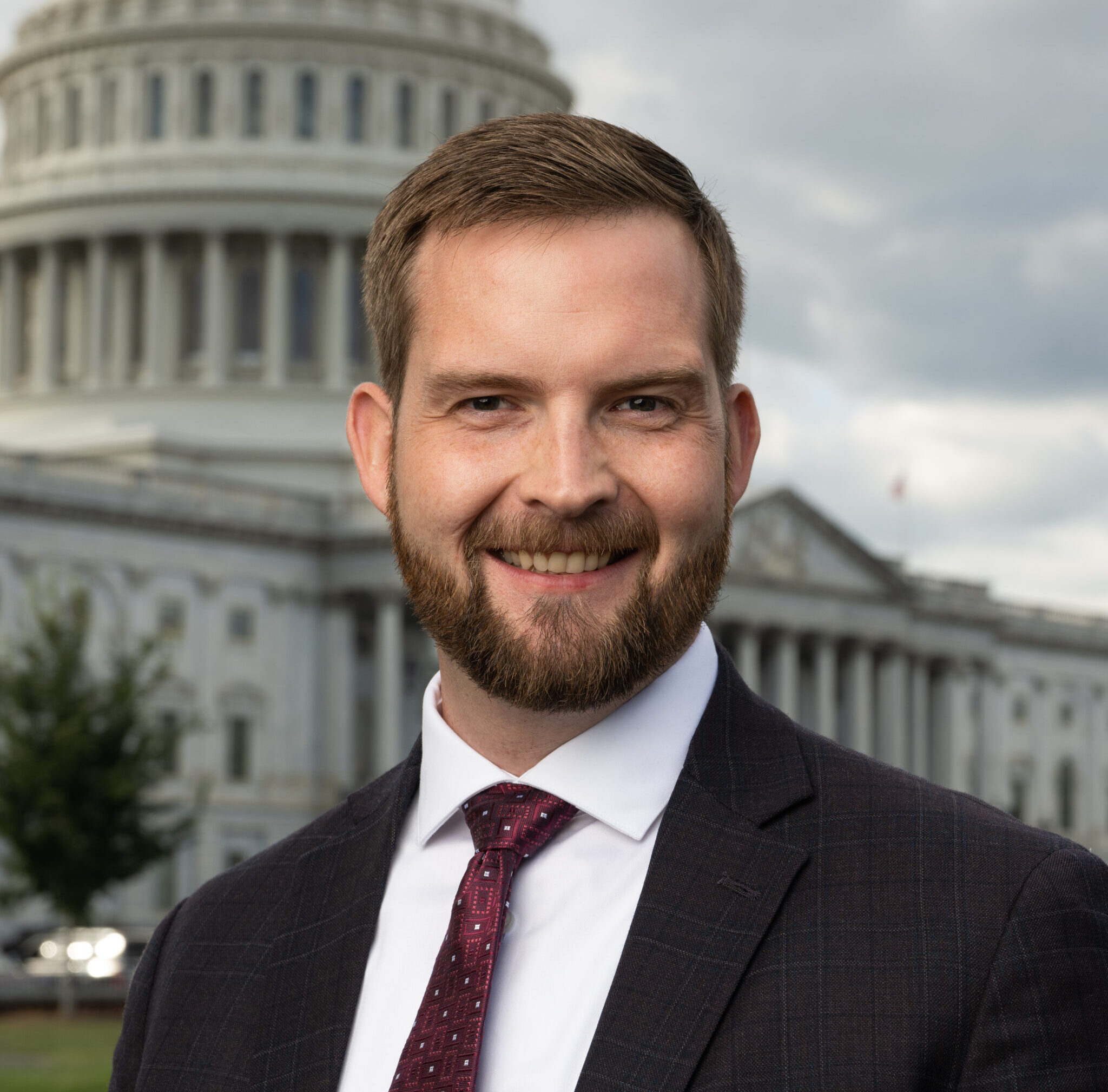
Reid Rasmussen
Constituent Services Representative for Representative Dusty Johnson
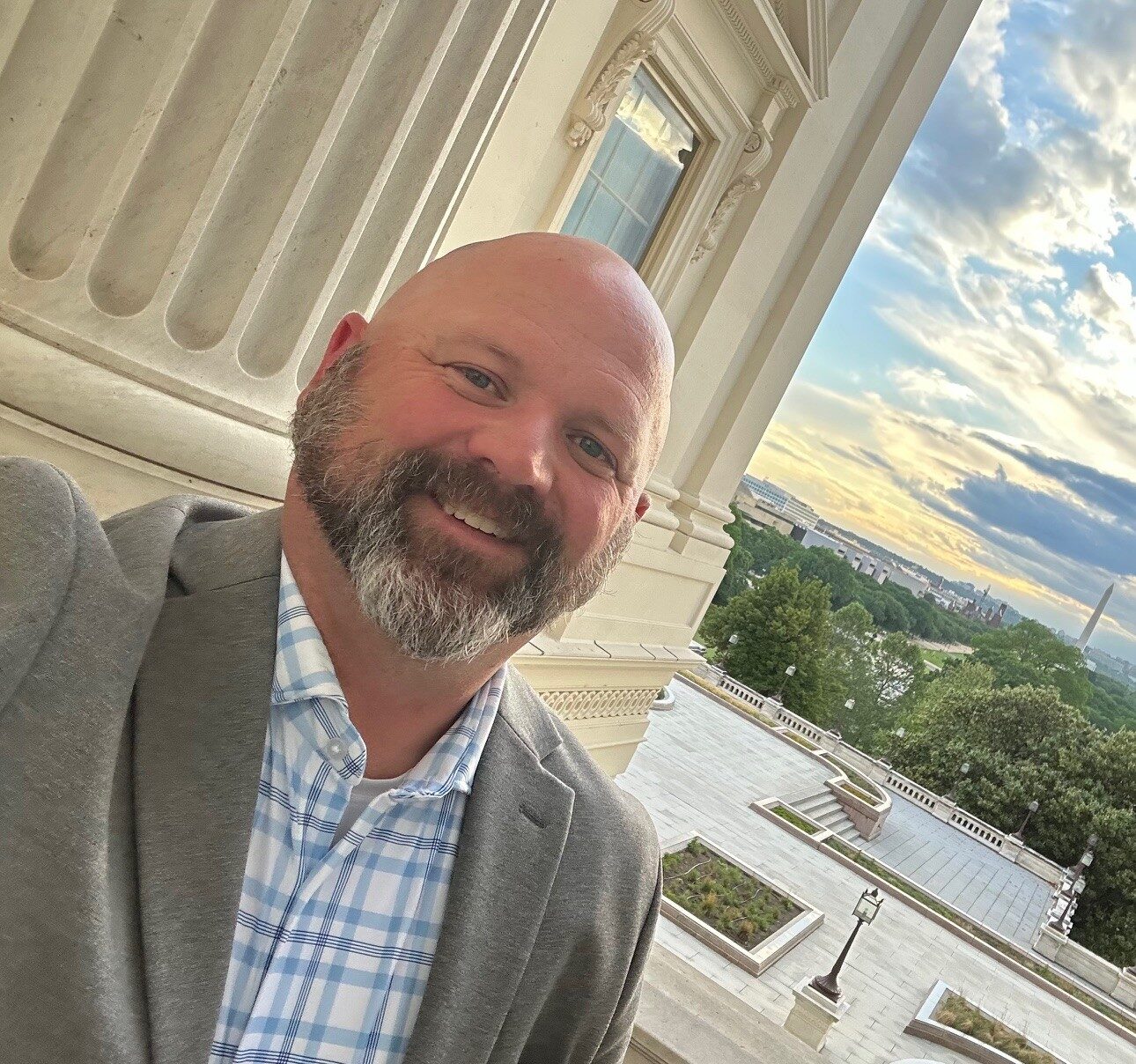
Ben Ready
Southeast Area Director for Senator John Thune
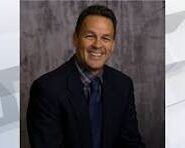
Keith Moore
Southeast Regional Director & State Director of Tribal Relations for Representative Mike Rounds
Emmett Keyser
Emmett is a native of Watertown, SD. He attended high school in Sioux Falls and graduated from SDSU in Brookings with a BS and MS degree in Wildlife and Fisheries. He spent nearly 45-year career working for SD Game, Fish and Parks in various positions, serving as Assistant Wildlife Division Director for more than 25 years where he oversaw wildlife field operations staff who worked in fisheries, wildlife, wildlife damage, habitat management and conservation law enforcement. He retired from SDGFP in July 2023 and currently resides in Brandon, SD with his family. He is an avid outdoorsman and continue to serve as an advocate and volunteer on the Board of the SD Wildlife Federation, as SD Volunteer Coordinator for the Mule Deer Foundation and as Vice-Chair of the Friends of the Sioux Falls Outdoor Campus Committee.
Cody Grewing
He's scaled mountains and traversed the seas. He's befriended beasts and tamed swarms of bees. But when he finds himself at the convenience of a cooperative breeze, what he enjoys the most is burning trees.
Alex Romero-Frederick
Alex Romero Frederick, Oglala Lakota, born and raised on the Pine Ridge Indian Reservation. Former FFA and 4H member with degrees in Science and History from Sinte Gleska University. Lifetime rancher and current operator of the oldest family ranch in Todd County where we run grass-fed cattle, horses and buffalo.
John Lockie
A 20 year employee of the Risk Management Agency, John has been involved with the Pasture, Rangeland and Forage product since its inception. A native of Montana, John and his wife have a cow/calf operation along the Yellowstone River west of Billings.
V.J. Smith
Professional Speaker and Author
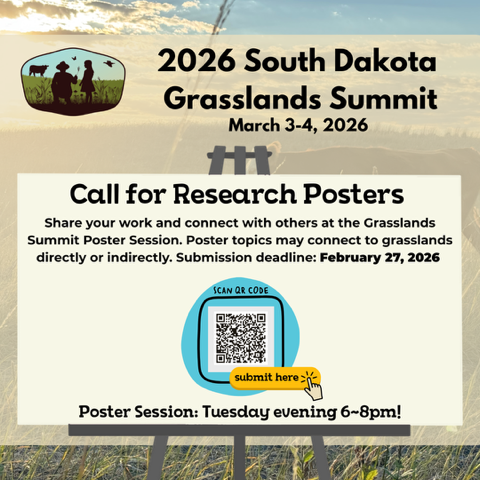
Submit Your Poster
Do you have a poster to share about your grassland operation, something your conservation district is doing for grasslands, or perhaps a research project? Please help us plan by submitting your poster information.
